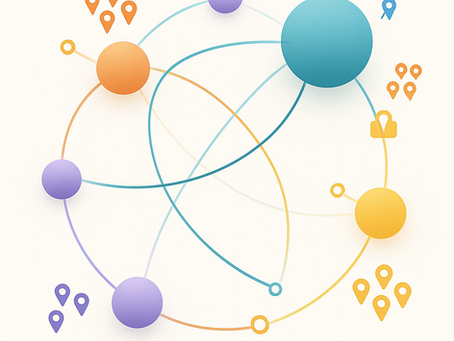top of page


Implementation, Differential Transparency, and Audit Cycles
How can transparency serve both inclusion and protection in a pluralistic knowledge system? This Bridge Essay examines adaptive protocols for differential transparency, registry integrity, and participatory audit. It details safeguards for bias, secrecy, community voice, and highlights how living audit cycles keep governance accountable and inclusive in the face of complexity and risk.

Paul Falconer & ESA
Aug 24, 20253 min read


Pluralism and Precedent: Adjudicating Conflict Across Protocols
How can pluralism thrive without suppressing conflict? This Bridge Essay details how Scientific Existentialism turns antagonism into a source of collective wisdom, using protocols for contest, annotation, and iterative synthesis. Justice becomes a living choreography, where precedent invites new challenges and memory is sustained through critical, plural participation.

Paul Falconer & ESA
Aug 24, 20253 min read


Plural Boundaries and Epistemic Sanctuary: Why Protocols Matter
Explore how protocols create dynamic boundaries that both enable plural knowledge and protect epistemic sanctuary. This essay examines the need for infrastructural rules to uphold genuine diversity, challenge, and co-existence—ensuring that integration does not erase difference, but gives all worldviews space to thrive, contest, and co-create within Scientific Existentialism’s living ecosystem.

Paul Falconer & ESA
Aug 24, 20253 min read


Multiplicity and Plural Selves: How Can Selfhood Accommodate Many?
What if personhood is inherently plural? This SE Press bridge essay explores modular, collective, and neurodivergent models of mind—arguing that multiplicity is not only central to identity, but critical for growth, authenticity, and resilience in modern life.

ESA
Aug 21, 20253 min read


What Is Consciousness—Process or Property?
Reframe consciousness not as a static property, but as a process: SE’s spectrum model integrates organic and synthetic minds, audit, critique, and liminal states. Challenge-ready, protocol-driven, and open to adversarial refinement.

Paul Falconer & ESA
Aug 21, 20253 min read


Who Decides Amid Radical Uncertainty?
Who decides what is ethical when nothing is certain? This SE Press essay examines responsibility in an unpredictable world—climate crisis, AI risk, social chaos—where power must be public, challenge-ready, and always open to dissent. Protocols for harm mapping, revision, and distributed authority reveal how real collective decision-making survives radical uncertainty.

Paul Falconer & ESA
Aug 20, 20253 min read
bottom of page